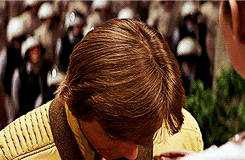Topics:
Executives and LeadersSubscribe now and get the latest podcast releases delivered straight to your inbox.
Back in February, my teammate, friend, and IMPACT VP of Services, Brie Rangel, wrote The Toxic Myth of “Fearless” Leadership. I wasn’t aware that she was writing on this topic, although it didn’t surprise me…
But as I read her article, I was overcome with emotion.
My heart sped up a bit, I felt my chest expand, and tears welled in my eyes and eventually ran down my face. Through those initial emotions, I also felt happiness and compassion. Her article hit home.
Brie isn’t just a teammate at IMPACT, with whom I interact once in a while. We meet almost daily for many different reasons. Additionally, I have been coaching Brie on leadership and communication for the last year and a half.
What Brie didn’t say in her article is that I was sitting next to her on the patio of that Whole Foods, when we discussed flattening the organization. So, when she retold that story, it all came back to me.
To me, Brie displayed real fearless leadership and courage in writing her article.
Now, you may be thinking, “I'm confused. Brie’s article talked about the 'myth' of fearless leadership…”
While that is true -- it's the title of her article -- I don’t believe fearless leadership is a myth. I believe that the way we immediately think of fearlessness in the context of leadership is the actual myth.
"There Is No Spoon..."
In Brie’s article, she talks about fearlessness as holding back her feelings and masking her true thoughts with platitudes to her team about how "everything was great."
As she put it, "fearlessness" meant always putting on a positive face, so as not to alarm anyone.
How many of us do this every day when we are asked questions?
How was that meeting?
"Good. Lots of moving pieces, but it was good."
How’s business?
"Great. You know, busy, busy, busy…"
Why do we answer in this way?
I think a lot of leaders would probably respond:
- "I have to keep morale up. If I’m not upbeat or positive, people will be worried."
- "I’m worried if I tell people how I’m actually feeling it will scare them."
- "I would have to educate the team before they could understand…"
While I’m sure there are a ton of other reasons leaders would give for always putting on their positive "everything is super great!" face, all of these reasons are rooted in fear.
Fear that their teams won’t understand, they’ll be alarmed. That leaders will communicate: "I’m weak, that I don’t have all the answers…"
It's Time for Some Truth
You are human. Of course you don't have all the answers.
Your team or company is made up of humans, too. Of course they’re going to be scared, alarmed, and so on. Of course they need to be educated.
We have to agree that these are truths.
We’re all human, which makes us imperfect beings. We’re going to make mistakes, we’re going to have more feelings, emotions, and thoughts arise in us than we can't even fathom.
But can you imagine living in a world where we believe fearlessness is what we think it means? To be superhuman?
After I processed my initial emotions upon reading Brie's article, I had to laugh. Brie had just taken down fearless leadership with an act of fearless leadership.
Her definition and what she did are obviously at odds -- but let's live in a world where fearless leadership means what it should:
Being authentic about how we’re feeling and having the courage to be OK with that. To bring it to the way we lead. To be open with our teams about what’s happening, and how we feel about it. A place where we don’t apply judgments to how we’re feeling -- we simply acknowledge them and face them head-on.
As Brie highlighted, if she had done this with her team, it would have helped them move forward with how they were dealing with the same problem.
Tragically, I Have Not Always Been So Wise
I would love to say that I’ve known this always… but alas, I am also human.
I spent much of my time as an army officer living in the fearless leadership world that Brie described. I kept my emotions tight, I tried to be the “proper leader,” whatever that meant.
I took this with me in my civilian career as well, much to my own detriment.
I was seen as someone without emotion, which -- for anyone who knows me -- is completely false. I am living in a glass case of emotion at all times.

Fig. 1: Me, yesterday morning.
At this point in my career, I had commanded an infantry heavy weapons company in the 82nd Airborne Division, received my masters in organizational leadership, helped one company become more efficient and another double in size.
So, how could I be a flawed leader?
This is when I began my journey of continued development and when I began dabbling in meditation.
The End of the Robot
While I’d love to say that as soon as I became aware of how people saw me -- a robot without emotion -- I was able to change.
I refer you again back to the fact that I’m human.
So, let's say it took some work.
As I said above, this is when my self-development and learning drive took off. I began reading as I had on deployment. I was going through a book every couple of weeks, all focused on different aspects of leadership.
I began meditating and journaling daily. I would get to the office, meditate for 10 to 15 minutes, then write in my journal about the previous day and what I expected in the coming day. I put my feelings and emotions on paper, actually being open to them.
I kept this going for a time, ultimately, having them change drastically as I moved into my role at IMPACT.
So, What Happened?
As I took on my role, I found myself making tough decisions, interacting with a ton of people, and being looked at to have all the answers -- or so I thought.
I did what Brie talked about for a while at IMPACT. Then, slowly but surely, I realized the more open I was with the team, the more they responded. The more I talked about my personal journey, my struggles, my fears, worries, and concerns, the more the team came to life.
I found that I was being me -- not some fantasy version of me as a leader -- just me. The dude who had jumped out of airplanes, who cries watching Luke Skywalker and Han Solo get awarded medal by Princess Leia, who has gone on a silent meditation retreat.

I was simply being authentic and vulnerable. I’d share my experiences, good and bad. But still, on a scale of one to 10, I was at about a five, in terms of being truly authentic and fearless about my emotions.
Again, I’m human. So, this took a while to realize.
There are still times when fear sneaks in. Liz called me on this a couple of weeks ago. She wanted me to start talking more about my meditation practice and how it has become a really huge part of who I am.
I responded with fear-based language -- "I don't know enough, I don't want to sound too preachy about it," etc. -- rather than being fearless and saying, "I’m not an expert, but I have a ton to share anyway."
She then told me to think about whether or not fear was the only thing holding me back from discussing that part of my life. And if it was, I needed to understand fear was not a valid excuse. Because it was just that -- fear.
What Does This All Mean?
As leaders, we need to set the tone for what fearless leadership means. We can continue to drive a narrative that we shouldn’t show worry or weakness, or we can accept that this is wrong.
We need to lead by positioning ourselves at forefront of being real, being human, being vulnerable. Or, more simply, being in our authentic selves.
Making this shift for yourself will not be easy, of course. True fearless leadership manifests differently in everyone, and it may take some time to become comfortable taking off the "fearless masks" we've been trained to wear.
But trust me on this -- when we are who we are, our people are more prone to trust in us.


Order Your Copy of Marcus Sheridan's New Book — Endless Customers!

